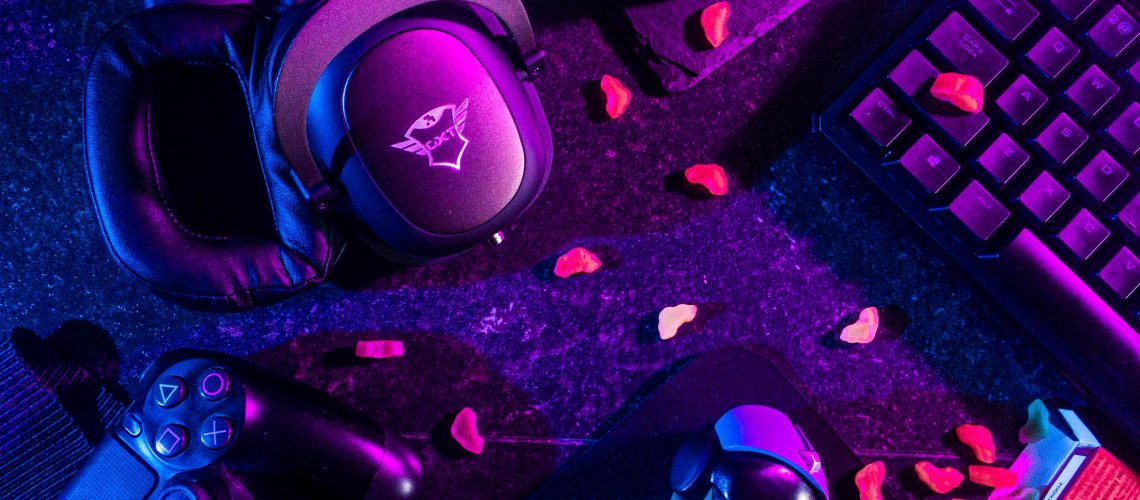If you think that esports athletes can eat as unhealthy as they want, you are wrong. It is no coincidence that professional teams have cooks who take care of the players’ diet. In competitive games, the brain has to function at its best so that the players can make the right decisions and implement them quickly. To maintain a high level of performance, the brain consumes nutrients that need to be replenished. In this article we will give you three tips on how to keep your brain fresh all day long.
Water
Since the human body consists mainly of water, it is essential to supply it with fluid. Even mild dehydration can affect concentration, memory and brain performance. In a study involving 26 men aged 20 years, researchers found that mild dehydration affects aspects of cognitive performance and worsens visual vigilance and visual working memory response latency [1]. Further studies showed that even mild dehydration is already enough to lower concentration and worsen reaction time [2, 3].
In esports the brain works at its maximum capacity. Tactics, strategy, decision making, coordination and orientation – cognitive skills are needed in every situation. Every little lack of concentration can cost you the victory. Have you ever had days when nothing seemed to work? A possible reason for this is that you did not drink enough water and your brain could not perform as well as you are used to. For this reason it is extremely important to make sure you drink water regularly.
How much water should you drink daily?
Harvard Medical School recommends drinking at least 4-6 glasses (1-1.5l) of water per day (4). Of course, the amount changes as soon as you become active and do sports. Drinking this amount of water shouldn’t be a problem at all, but it often happens that one forgets to drink, especially when participating in a competitive game.To prevent yourself from not drinking enough water, you can set an alarm clock on your smartphone to remind you to drink every hour. There are numerous free water drinking alarm clock apps that record and even analyze your drinking behavior.
Healthy Snacks
While playing, it´s normal to eat snacks. Among others, potato chips are very popular. But potato chips are exactly what you should not eat if you want to concentrate and push your brain to maximum performance. Potato chips are fried and contain hardly any nutrients that are beneficial to your body. The high fat content of potato chips is also a disadvantage because it can only be digested very slowly, which makes you more tired and sluggish. If you want to be awake and concentrated while playing, there are much better alternatives you can snack while playing.
Nuts
Nuts like peanuts, walnuts or hazelnuts are great for concentration. The omega-3 fatty acids in nuts stimulate brain function and support memory. In addition, nuts are fantastic sources of protein, they fill up quickly and can be eaten every day without much concern, as their nutrients have a very positive effect on health and even reduce the likelihood of many diseases [5, 6]. Nuts can also be combined with dried fruits. For example raisins, which are rich in iron, B vitamins and potassium. Due to the dextrose they provide your brain with energy and you are immediately more awake and concentrated.
Fruits and Berries
Of course you can also use any fruit as a snack. Apples, bananas, oranges and other fruits are rich in vitamin C. Bananas have many carbohydrates that provide the body with energy and fructose that boosts your energy levels even further. However, berries are considered the ultimate brain food. The positive effect of berries on memory has already been confirmed in several studies [7]. Whether strawberries, blueberries, raspberries or blackberries, they all have a positive effect on the performance of your brain, and they taste good!
Healthy Main Meals
For the main meals you should also pay attention to what you eat. You should avoid fast food as much as possible in your diet. Fast food contains a lot of saturated fatty acids, which can be very harmful to your body in the long run. Of course, the occasional fast food meal will not ruin your health and cause problems immediately. However, a continuous consumption will not only have negative effects on your body but also on your mind. Researchers have found that people who consumed fast food at least three times a week were much more susceptible to mental problems and disorders and thus more prone to depression and anxiety [9]. That a healthy mind is important in esports and in every competitive sport does not need to be explained. It´s extremely important to keep a cool head and have your emotions under control.
If you want to optimize your performance, make sure to eat more unsaturated than saturated fatty acids during your main meals. Unsaturated fatty acids are healthy and have a positive effect on your performance. Some of the biggest sources of healthy fats for your brain are olive oil, linseed oil, canola oil, avocados and fish, which is very rich in omega-3 fatty acids. Omega-3 fatty acids enable the exchange of nerve information, which helps you to process and link information much faster [8].
Conclusion
Milliseconds count in Esports. In order to exploit your potential to the fullest, your diet will certainly play a role in the long run. Through proper nutrition you will create a healthy lifestyle, that not only makes it easier for you to perform at your highest level in esports, but also creates a high-energy basis for other areas of your life.
Sources
(1) Matthew S. Ganio; Lawrence E. Armstrong; Douglas J. Casa; Brendon P.
McDermott; Elaine C. Lee; Linda M. Yamamoto et al. (2011): Mild dehydration
impairs cognitive performance and mood of men. In: British Journal of Nutrition
106 (10), S. 1535–1543. DOI: 10.1017/S0007114511002005.
(2) Ganio, M. S.; Le Armstrong; Casa, D. J.; McDermott, B. P.; Lee, E.
C.; Yamamoto, L. M. et al. (2011): Mild dehydration impairs cognitive
performance and mood of men. In: The British journal of nutrition 106 (10). DOI:
10.1017/S0007114511002005.
(4) Olson, S. (2015): How Much Water Should You Really Drink Each Day? Medical
Daily. Online available at
https://www.medicaldaily.com/how-much-water-should-you-drink-each-day-4-6-glasses-ideal-researchers-say-344822,
last checked on 08.09.2020.




